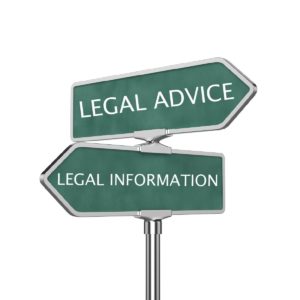With the rise of Google reviews and websites like Yelp and Avvo, it has become easier for a client or former client to widely disseminate derogatory comments about you and the legal services you provide. Such a review would likely get your blood boiling, and the temptation to respond forcefully will be high.
But before you press the publish button, you need to take a step back and consider whether you should respond at all. Responding could draw more attention to it or may cause the client to lash out even more.
If you respond…
If you still feel the need to respond, make sure you don’t violate your ethical duties to the client. Several bar associations have addressed this issue in published ethics opinions.
Pennsylvania Bar Association – (Formal Op. 2014-200)
Pennsylvania does not bar a lawyer from responding to a client’s negative online review, but cautions that any response
- must be proportional and restrained and
- must not reveal confidential client information without a client’s informed consent.
A response deemed to pass ethical muster in Pennsylvania:
A lawyer’s duty to keep client confidences has few exceptions and in an abundance of caution I do not feel at liberty to respond in a point-by-point fashion in this forum. Suffice it to say that I do not believe that the post presents a fair and accurate picture of the events.
Los Angeles County Bar Association (Op. No. 525)
Where a former client has posted negative comments about the lawyer, but the former client did not disclose any confidential information and there is no litigation pending between the former client and the attorney, the attorney can publicly respond if the rebuttal:
- does not disclose any confidential client information;
- does not injure the former client in any matter involving the prior representation; and
- is proportionate and restrained.
Bar Association of San Francisco (Opinion 2014-1)
Where a former client’s matter has concluded, an attorney may respond generally to a negative online review, but the duty of confidentiality prohibits the attorney from disclosing confidential client information absent the former client’s informed consent or waiver of confidentiality.
If the former client’s matter has not concluded, it may be inappropriate for an attorney to provide an online response, even if it does not disclose confidential information.
Whatever you do don’t disclose confidential client information
In Illinois, an attorney was reprimanded for revealing confidential client information in response to a negative Avvo review by a former client.
Likewise, in Georgia, an attorney received a public reprimand, in part, because she violated Rule 1.6 by disclosing private client information on the internet in response to negative reviews by the client. The client information disclosed included the client’s name, employer, and other personal details.
Sue your client instead?
Another approach that some lawyers have used with mixed success is to sue the clients for defamation. (Georgia case; Texas case; Texas case). But proceed with extreme caution when considering suing a client. Malpractice counterclaims are likely to be asserted in response.






